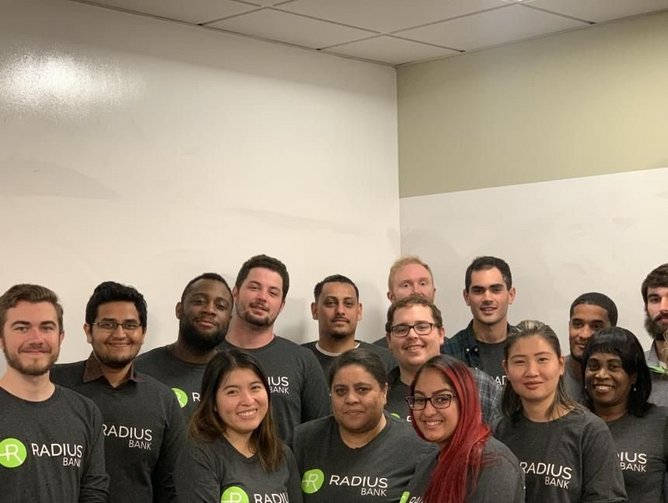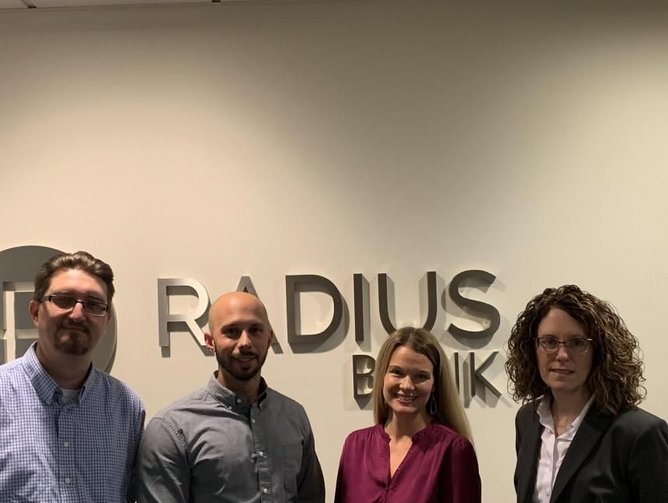How Radius Bank maintains its status as a market disruptor by taking carefully considered risks
The American digital banking space has historically fallen behind the wider world’s innovations. Radius Bank seeks to correct that. It specialises in partnering with fintechs to provide industry-leading consumer and commercial offerings. Recently, it was named Best Online Bank by Bankrate.com. Headquartered in Boston, Massachusetts, the company has provided financial services for customers across the nation since 1987, when it was still called First Trade Union Bank. The business assumed its current name in 2014, a decision that coincided with a major transformation that closed every brick-and-mortar branch except one and evolved it into a digital-first organisation.
Joe Mancini has been at Radius since 2016, overseeing information and cybersecurity across every facet of the bank and working closely with business lines, managing external partners, and ensuring appropriate protection on networks and assets. Mancini’s lifelong interest in cybersecurity has resulted in him working everywhere, from front-line protection at banks to interning at a local police department. With a special focus on cybercrime, he brings a unique perspective to his role. “My viewpoint tends to be ‘what is the visibility from a malicious actor standpoint, and how can we work from there?’,” Mancini explains. “Often, it tends to be a cat-and-mouse game. You find a vulnerability; you patch it before it’s exploited. We come at it from a more investigative background.” Mancini’s role includes a business enabling approach, seeking opportunities to help Radius grow. His team works closely with the virtual banking team to assess acquisitions and potential partnerships, while also keeping an eye out for emerging technologies such as cryptocurrency.
By partnering with fintechs, Radius drastically reduces its time to market and was able to rebuild its entire digital platform in a mere four months. “Our digital banking strategy is built around fintech driven technology,” Mancini explains. “Push products, gain customers and create a frictionless experience. The biggest challenge is speed to market and flexibility. Aligning with partners that provide the high-tech platforms allows us to offer these industry-leading products and services to consumers and businesses.” Some partners play a major role in Radius’ risk prevention programmes; Alloy operates heavily within Radius’ fraud prevention space. Together, the two companies rebuilt the model by which Radius judges the risk of potential customers, integrating a risk waterfall with seven to eight checkpoints. With the help of partners like Alloy, Radius Bank has been able to significantly decrease its fraudulent account openings. The financial benefits have also been high, while the technology costs of opening a new account decreased. Trust and shared values are at the core of Radius’ partnerships. “Speed to market is critical,” Mancini says, “but we also need to understand there is risk in the digital space. It’s about finding the right balance.”
To ensure the highest standards of cybersecurity, Radius Bank embeds risk management into every stage of development. Banking is already a highly regulated industry, but Radius goes further. “The risk team is involved from day one in all these projects and partnerships,” Mancini states. “It’s about building a business enabling approach rather than having risk seen as the roadblock.” This allows the risk team to catch problems before they happen, aligning with business partners while ensuring security compliance. “Proactively identifying potential risks and vulnerabilities is a critical component to the project lifecycle.” Mancini continues, “there is significant pressure to build and release products as quickly as possible to remain competitive. Radius’ speed to market is industry leading, but we won’t roll out a product that poses a risk to our customers.”
The key to implementing such a new system has been mutual trust between employees and executives. “It all goes back to culture,” notes Mancini. “You can have the best strategy in the world, but if your culture isn’t in line with that, you’re in trouble.” Team building starts from recruitment. Radius seeks out individuals whose values and mentality align with the bank’s, offering in turn a high-benefits, high-energy work environment. In order to attract talent, Radius ensures its offerings are substantial and competitive with the standards of the best tech companies and that employees have flexibility and perks, such as the ability to work from home. “We want to incorporate a fun, hard working experience, while at the same time acknowledging the need for a cross functional, open-minded approach from all of our employees.” Security compliance comes down all the way from the executive team and board of directors. To this regard, Mancini emphasises the importance of leadership setting the example that others should follow.
Security is a high priority to modern consumers, but so is a frictionless experience. Ultimately, it comes down to providing customers with the best experience possible in an all-encompassing single platform. Part of engaging with new technologies is acknowledging contemporary cybersecurity needs. “Today’s cybersecurity landscape presents a complex array of risks with a growing list of technology-driven tools to help combat those threats,” Mancini says. The biggest risk continues to be the human element. Employees are still the main target of malicious actors. “Phishing attempts aren’t going away anytime soon.” Mancini adds, “It’s about educating employees and customers about these potential risks.”
Partnering with fintechs puts Radius Bank at the cutting edge of the industry, meaning it becomes the company that sets the precedent. Mancini states, “rather than looking at it as a challenge, we welcome the opportunity.” This is particularly important moving into the future, as the banking industry evolves and becomes increasingly digital. Over the next five years, Radius Bank intends to continue being a leader within the emerging technology sphere. It turns towards international waters for inspiration, absorbing concepts from the advancing global technology. “We will continue to strategically incorporate high-tech driven initiatives,” Mancini concludes. “We are an industry disruptor and are excited for what the future holds for Radius and our customers.”





